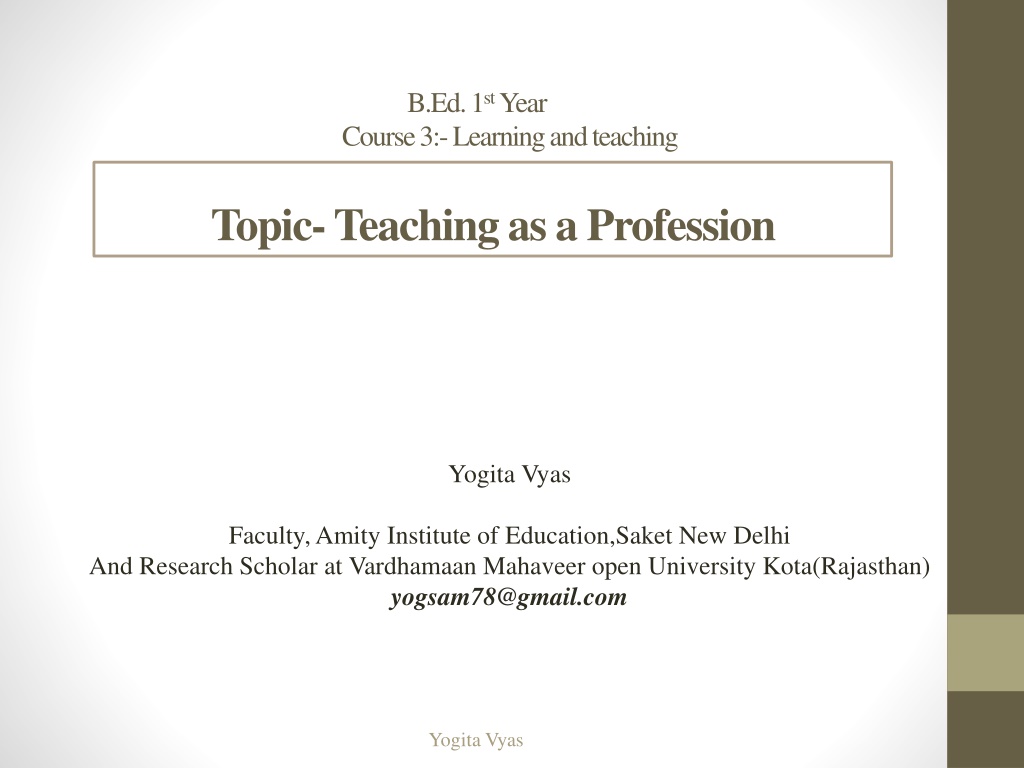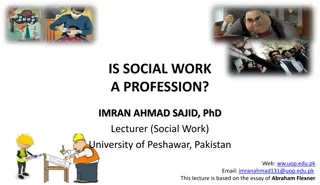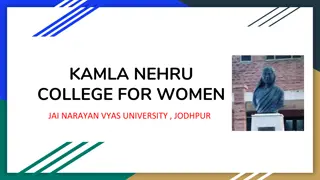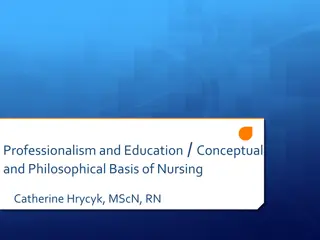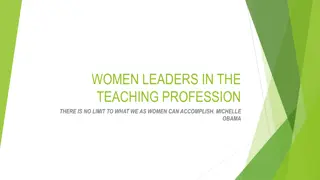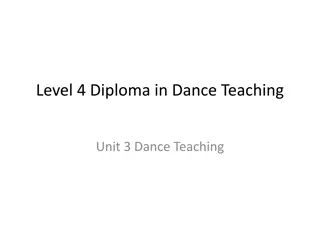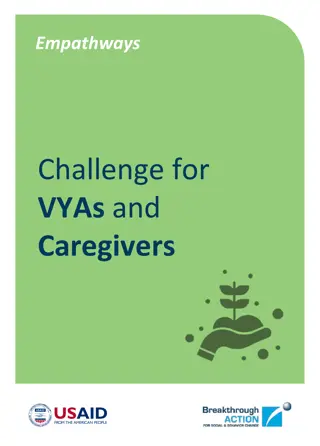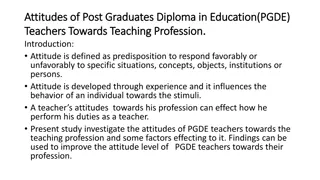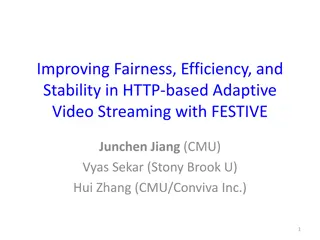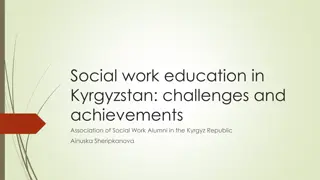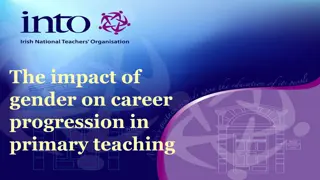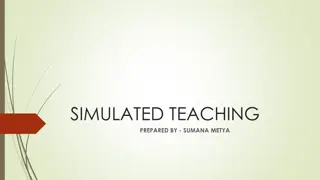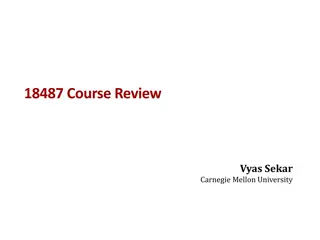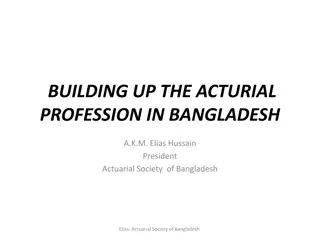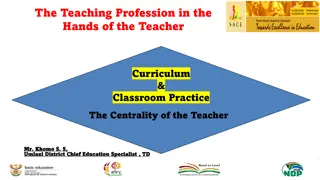Understanding Teaching as a Profession by Yogita Vyas
Explore the comprehensive module by Yogita Vyas focusing on the nature of teaching, characteristics of effective teaching, importance of teaching as a profession, and qualities of a professional teacher. Gain insights into the teaching profession, its role in society, and the essential skills required for educators. Delve into the concepts of profession, teaching as a specialized process, and the commitment to service guided by ethics.
Download Presentation

Please find below an Image/Link to download the presentation.
The content on the website is provided AS IS for your information and personal use only. It may not be sold, licensed, or shared on other websites without obtaining consent from the author. Download presentation by click this link. If you encounter any issues during the download, it is possible that the publisher has removed the file from their server.
E N D
Presentation Transcript
B.Ed. 1st Year Course 3:- Learning and teaching Topic-Teaching as a Profession Yogita Vyas Faculty, Amity Institute of Education,Saket New Delhi And Research Scholar at Vardhamaan Mahaveer open University Kota(Rajasthan) yogsam78@gmail.com Yogita Vyas
Learning outcome At the end of this module student will be able to know:- Meaning of teaching Nature of Teaching Meaning of Profession Understand Teaching as Profession Characteristics of Effective and Ineffective Teaching Importance of Teaching Profession Attitude of Student-Teacher Towards Teaching Profession Qualities of a professional Teacher Faculty Development Programs Teaching and learning for sustainable development Yogita Vyas
Nature of teaching TEACHER . Teaching STUDENT CURICULUM 1.Teaching is a Tripolar process. 2.Teaching is a professional activity. 3.Teaching is science as well as art. 4.Good planning is very important in Teaching. 5.Teaching is a process that facilitate learning. 6.Teaching is a guidance. 7.Teaching needs effective communication. 8.Teaching is motivation to learn things. 9.Teaching is an interactive process. 10. Teaching takes place at multiple level. Yogita Vyas
What is Teaching Source Google Image Teaching is a specified process that facilitates learning. Teaching is the specialized application of knowledge, skills and attributes designed to provide unique service to meet the Educational needs of individual and society. Yogita Vyas
PROFESSION The term 'Profession' stands for an occupation which requires some specialized study and training, and the purpose of which is generally to provide skilled services and guidance According to Halliday a profession is an occupation with a set of competency based on knowledge acquired through many years of academic training, the goal of its members being a commitment to service guided by a code of ethics. It requires formal qualification, mastery of skills, specialized knowledge and prolonged training. We can say A professional is a skilled practitioner. Profession is the phenomenon of vital activity created by division of labor that social, economical and technological factors require Yogita Vyas
Teaching as a Profession The main characteristics of a profession: It demands possession of a body of specialized knowledge and extended practical training. It renders an essential social service. It demands continuous in service training of its members. It has a clearly defined membership of a particular group with a view to safe- guarding the interests of the profession. It involves a code of ethics. It sets up its own professional organization. It assures its members a professional career. Yogita Vyas
TEACHING AS A PROFESSION It has a truth and loyalty. It should have the qualities such as Honesty, Humbleness, Accountability, self regulation and Integrity. It must have responsibilities and Social justice. It demands regularity and punctuality Teaching requires a sound body of knowledge. It requires special training and practice. It is a multi skill activity. It creates all professionals. It requires continuous updating of one s knowledge It emphasizes punctuality and regularity. It focuses on character. It has rigid code of ethics. It has high status and dignity. Yogita Vyas
PROFESSIONAL TEACHER Possesses sufficient level of mastery over the content knowledge of the subject Continuously strives to update his/her knowledge through self-study, reflections,discussion with colleagues and participation in orientation or tanning programs. Is a keen observer of children s behavior in different settings Sincerely commuted to the students and always keeps their interests above every thing else. Is committed to the teaching profession, strives to contribute towards its further development. Well-versed in providing guidance and counseling to students and is always willing to help them in solving their problems. Possesses a fair amount of expertise in various professional tasks such as teaching ,testing, curriculum making, textbook writing aids etc. Yogita Vyas
CHARACTERISTICS OF EFFECTIVE TEACHING (RELATED TO ORGANIZATION AND CLARITY) Well prepared with his/her topic before going to the class. Explain everything very clearly with relevant example. Makes difficult topics easy to understand keep his/her learner in mind and the level of the class. Uses lot of examples, pictures ,details, variety of models and content related teaching aids in his /her teaching for making students easy and memorable learning. Try to fulfill all objectives of the course and the topic in the allocated time. Yogita Vyas
CHARACTERISTICS OF EFFECTIVE TEACHING (APPROACH ANALYTIC AND SYNTHETIC APPROACH) Had a thorough command over the subject. Gives the student a sense of the field, its past, present and future directions, the origin of ideas and concepts. Give present facts and concepts from related fields. Discuss view point of others in the class. Yogita Vyas
CHARACTERISTICS OF EFFECTIVE TEACHING (DYNAMISM AND ENTHUSIASM) Is an energetic, dynamic person Seems to enjoy teaching conveys a love of the field has an aura of self-confidence Yogita Vyas
CHARACTERISTICS OF EFFECTIVE TEACHING (INSTRUCTOR-GROUP INTERACTION) Can stimulate, direct, and pace interaction with the class. Encourages independent thought and accepts criticism. Uses wit and humor effectively. In a good public speaker knows whether or not the class is following the material and is sensitive to students motivation Is concerned about the quality of his/her teaching Yogita Vyas
CHARACTERISTICS OF EFFECTIVE AND INEFFECTIVE TEACHING (INSTRUCTOR-INDIVIDUAL STUDENT INTERACTION) Is perceived as fair, especially in his/her methods of evaluation. Is seen by students as approachable and a valuable source of advice even on matters not directly related to the course. Yogita Vyas
CHARACTERISTICS OF INEFFECTIVE TEACHING When teacher ask question in class and immediately call for volunteer(who always give answer in class) to give answer. When teacher give answer without giving time to think to the students. Fail to provide variety in instruction (multimedia ,board work ,storttelling,assignments,discussion,activities etc.) in the class. Teach without clear learning objectives. Disrespect students ,avoid student s need and understanding while teaching in the class. Fail to establish relevance of the content with learners need and carrier goals. Yogita Vyas
FACULTY DEVELOPMENT PROGRAM Faculty Development programs strengthen the professional development of the faculty members and administrators who deal directly with students. The Goal of the FDP is to help these educators increase the effectiveness of their teaching, so that they are better able to guide students on journeys of inquiry and discovery. Faculty Development program has provided pedagogical training to faculty and other specialized training sessions for enhancement of the knowledge about latest methods, techniques of their subject areas. Faculty Development Program has been provided to the educators so that they can sharpen their skills for effective teaching. Yogita Vyas
FACULTY DEVELOPMENT PROGRAM Faculty development has been defined as that wide range of activities that institutions apply to support faculty members' roles. This included programs designed to improve the performance of faculty members in education, research and administration as well as augmenting organizational capacities and culture Enriching the faculty vitality in key domains of teaching, assessing, research, professionalism, and administration is perceived to improve educational environment significantly and enhances the academic performance of learners. Yogita Vyas
WHY TEACHING IS THE MOST IMPORTANT PROFESSION Teacher can change lives with just the Right mix of chalk and challenges -Joyce May Teaching is the profession that teaches all the other professions. Teachers have the capacity to shape the minds and futures of many students. A Teacher can makes a difference in learners life by giving knowledge related to his/her life. A good teacher helps us to become a good human being in society and a good citizen of the country. Teachers know that students are the future of any nation. So the future development of any nation is in the hands of teachers. Yogita Vyas
Why teaching is the most important profession Teaching is the profession that teaches all the other professions Teaching has potential to transform lives. Teaching can give the chance to be continuously creative. Teaching is a grounding and humbling profession. Teaching can give the chance to continuously get better. Teaching can make a difference in child s life every single day. Yogita Vyas
QUALITIES OF A PROFESSIONAL TEACHER Specialized Knowledge based on extensive Preparation. Participates in ongoing Training and development. Accepts responsibility. Always maintains high standards of his/her performance. Have a sense of ownership of their work. Maintains a collective networking sprit outside of the organization. Always maintain high standards of ethics and Integrity. The ability to develop good and cordial relationships with their students. Patient, caring, and kind personality. Knowledge about learners problems and challenges and always try to solve them. Dedication towards teaching. Engaging students in learning. Always try to create barrier free learning environment in the class. Respect Individual difference in the class. Yogita Vyas
QUALITIES OF A PROFESSIONAL TEACHER Continuously strives to update his/her knowledge through self study,discussion,reflections with colleagues and participation in orientation or training programs. Is a keen observer of children s behavior in different settings inside or outside the school. Well aware of his /her social obligations. Keeps sufficient level of command over the content knowledge of the subject. Is well versed in providing guidance and counseling to students and is always ready for solving their problems. Yogita Vyas
Attitude of student-teacher towards teaching Development of positive attitude towards profession helps in developing creative thinking and motivating students. The positive attitude helps teacher to develop a conductive learner friendly environment in the classroom. The teacher s attitude towards the subject and student is significant in creating desire to learn in the students. A positive attitude towards teaching profession can bring the desired quality in the education sector by developing sense of duty, professional competence and by giving them an insight of the student s needs and problems. Yogita Vyas
Teaching and learning for sustainable future Teaching and Learning for a Sustainable Future is a UNESCO Programme for the United Nations Decade of Education for Sustainable Development. It provides professional development for student teachers, teachers, curriculum developers, education policy makers, and authors of educational materials. This program is for pre-service teacher courses as well as the in-service education of teachers, curriculum developers, education policy makers, and authors of educational materials. This programme enable teachers to plan learning Experiences that empower their students to develop and evaluate alternative visions of a sustainable future and to work creatively with others to help bring their visions of a better world into effect. It will also enhance the computer literacy of teachers and build their skills in using multimedia-based resources and strategies in their teaching. Yogita Vyas
Teaching and learning for sustainable future This is developed by UNESCO as a Demonstration Project to Illustrate:- Ways of meeting the professional development needs of educating for a sustainable future. The potential of international collaboration in providing resources for teacher professional development. The potential uses and benefits of multimedia technologies in pre- and in-service teacher education. It was developed by UNESCO in its function as task manager for the International Work Programme on Education, Public Awareness and Training for Sustainability of the United Nations Commission on Sustainable Development and for the 2002 World Summit on Sustainable Development. The forthcoming Version 6 has been significantly updated and redesigned, and will include two new modules one of which is looking specifically at Climate Change. Yogita Vyas
Teaching and learning for sustainable future The Climate Change module provides resources for teachers so that they can feel confident in their knowledge of climate change science and the impacts of the climate crisis and plan interesting and relevant lessons for their students. Through a series of activities and guided critical reflections the module will enable teachers to: Understand basic concepts, trends and issues in climate change science; Understand the complementary nature of climate change mitigation and adaptation and the major strategies used in each; Appreciate the ethical dimensions of climate change processes and their impacts; and dandify the educational implications of teaching about climate change. Yogita Vyas
Conclusion Teaching is a profession which requires some specialized study and Training. It creates all professionals. Students ,teachers and curriculum are main three elements of teaching. A lot of qualities are required for a professional teacher. Teaching and Learning for a Sustainable Future is a UNESCO Programme for the United Nations Decade of Education for Sustainable Development. This programme enhance the computer literacy of teachers and build their skills in using multimedia-based resources and strategies in their teaching. Yogita Vyas
References Mohan,Radha.(2011)Teacher Education, New Delhi -PHI learning private limited https://www.snhu.edu/about-us/newsroom/2017/12/qualities-of-a-good-teacher https://www.pearsoned.com/top-five-qualities-effective-teachers/ http://www.unesco.org/science/doc/cc/plenaryII/TLSF_ClaytonWhite.pdf https://www.snhu.edu/about-us/newsroom/2017/12/qualities-of-a-good-teacher Yogita Vyas
